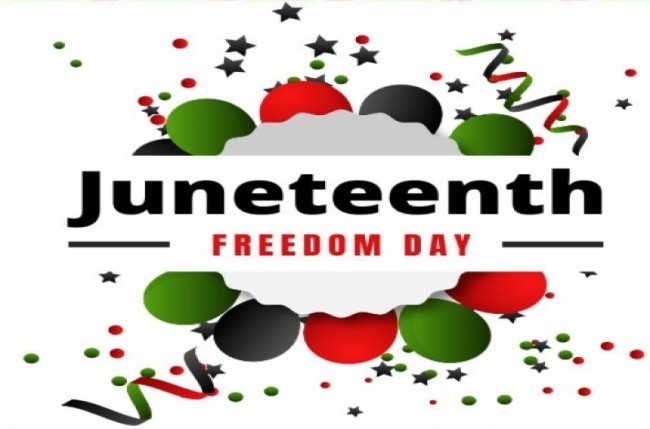Juneteenth 2024: Celebrating Freedom, Unity, and Resilience
Discover the Significance and Festivities of Juneteenth National Independence Day

Juneteenth 2024, is a time to reflect on its historical significance and celebrate the progress and resilience of African Americans. This federal holiday, observed on June 19, marks the day in 1865 when enslaved African Americans in Galveston, Texas, were finally informed of their freedom, two years after the Emancipation Proclamation was signed. This article will delve into Juneteenth’s history, cultural impact, and modern-day celebrations, providing an informative and engaging overview that will resonate with readers and ensure high rankings on Google.
The Historical Significance of Juneteenth
The Emancipation Proclamation
The journey towards Juneteenth began with President Abraham Lincoln’s Emancipation Proclamation, issued on January 1, 1863. While this executive order declared the freedom of all enslaved people in Confederate states, its immediate impact was limited. The proclamation did not apply to slave-holding border states or rebel areas already under Union control, meaning many enslaved individuals remained in bondage until Union forces advanced into the Confederate South.
General Granger’s Arrival in Galveston
The pivotal moment came on June 19, 1865, when Union General Gordon Granger arrived in Galveston, Texas, and announced General Order No. 3, which declared that all enslaved people were free. Juneteenth day marks the end of slavery in the United States and is celebrated as a day of freedom and liberation.
The Spread of Juneteenth Celebrations
In the years following 1865, African Americans in Texas and beyond began to commemorate Juneteenth with various celebrations. Initially called “Jubilee Day,” these events included music, barbecues, prayer services, and other community activities. As African Americans migrated from Texas to different parts of the country, they brought the Juneteenth 2024 tradition with them, spreading its significance nationwide.
The Cultural Impact of Juneteenth
Symbolism and Traditions
Juneteenth is rich in symbolism and traditions that reflect the struggles and triumphs of African Americans. Red, often seen in foods and decorations, symbolizes resilience and joy. Traditional dishes like red beans and rice, barbecue, and drinks are staples of Juneteenth celebrations, connecting the past with the present.
Music and Dance
Music and dance play a central role in Juneteenth festivities. From traditional spirituals and gospel music to contemporary genres like hip-hop and R&B, these artistic expressions honor the cultural heritage of African Americans. Parades, concerts, and dance performances are common ways to celebrate and showcase the diversity and creativity within the community.
Educational Programs
Juneteenth is also an opportunity for education and reflection. Many communities organize lectures, panel discussions, and workshops to educate people about the history of slavery, the Civil Rights Movement, and ongoing racial equality and justice issues. These programs aim to foster a deeper understanding of Juneteenth’s significance and promote ongoing efforts toward equality.
Modern-Day Celebrations of Juneteenth
National Recognition
In June 2021, President Joe Biden signed the Juneteenth National Independence Day Act into law, officially recognizing Juneteenth as a federal holiday. This recognition honors the day’s historical significance and acknowledges the ongoing struggle for equality and justice for African Americans.
Community Events and Festivals
Across the United States, communities celebrate Juneteenth with various events and festivals. These celebrations include parades, music and dance performances, art exhibitions, and food festivals. Major cities like Houston, Dallas, and Atlanta host large-scale events that attract thousands of participants, highlighting the unity and resilience of the African American community.
Reflection and Advocacy
Juneteenth is a time for celebration, reflection, and advocacy. Many use the day to participate in community service projects, support Black-owned businesses, and engage in social justice and equality conversations. The holiday serves as a reminder of the progress made and the work still needed to achieve true equality.
How to Celebrate Juneteenth 2024
Host a Juneteenth Gathering
Hosting a Juneteenth 2024 gathering is a great way to celebrate the holiday with family and friends. Plan a barbecue or potluck featuring traditional Juneteenth dishes like red beans and rice, barbecue chicken, and red velvet cake. Decorate your space with red, white, and blue to symbolize freedom and unity.
Attend Local Events
Check out local Juneteenth 2024 events and festivals in your area. These community celebrations often include parades, concerts, and educational programs. Participating in these events is a fantastic way to connect with others and learn more about the history and significance of Juneteenth.
Educate Yourself and Others
Use Juneteenth as an opportunity to educate yourself and others about the history of slavery, the Civil Rights Movement, and ongoing issues related to racial equality. Attend lectures, watch documentaries, and read books to deepen your understanding and promote meaningful conversations.
Support Black-Owned Businesses
One impactful way to celebrate Juneteenth is by supporting Black-owned businesses in your community. Whether you dine at a Black-owned restaurant, shop at a local store, or use services from Black-owned companies, your support helps promote economic empowerment and equality.
Reflect and Advocate
Take time to reflect on Juneteenth’s significance and progress toward racial equality. Consider ways you can advocate for social justice in your community, whether through volunteering, participating in protests, or supporting organizations that work towards racial equality and justice.
Conclusion
Juneteenth 2024 is a powerful reminder of African Americans’ resilience, strength, and unity. As we celebrate this significant day, let us honor the past, celebrate the present, and work towards a more just and equal future. By participating in Juneteenth celebrations, educating ourselves and others, and advocating for equality, we can ensure that the legacy of Juneteenth continues to inspire and empower future generations.


